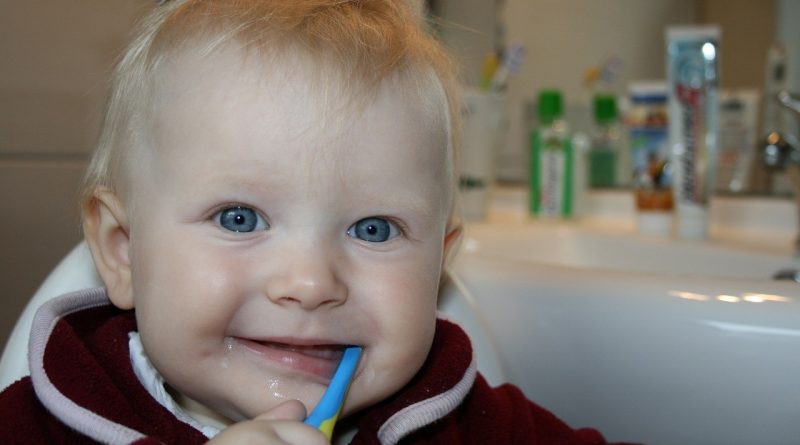Baby Teething Symptoms: 7 Signs of a Teething Baby
When from the gums of babies, the new teeth erupt or rise then this process is known as teething. For a 2 months old baby there is a possibility of teething to start in his mouth. The central incisor in the lower part of the jaw will erupt first. At the time of eruption, swelling and redness will occur in the gum area that surrounds the tooth. When teeth erupt, different levels of sensitivity can be felt in different types of teeth. Maximum sensitivity will be felt during the eruption of the first tooth.
At what age teething starts in babies?
In 2 to 8 months old babies, teething can be seen. Ear rubbing, gum rubbing, increased biting, diarrhea, mild temperature, an appetite loss, drooling, gum inflammation, swelling, disrupted sleep and irritability are the various symptoms that can be seen in the period of teething. The British Dental Journal has published an article. As per this article a large number of parents, nearly 70 % – 80 %, have reported teething symptoms in their babies.
Don’t confuse yourself by taking cold symptoms as teething symptoms
Sometimes in 6 months old babies teething can start. The placenta of the mother passes the immunities to the infants and this immunity diminishes when your baby is 6 months old. The reason behind this is that the establishment of the immune system of the babies starts at this age. There is a possibility of some infections developing in the infants at this stage. The cold or illness can confuse you with the teething symptoms as above mentioned both the changes occur in the babies when they are 6 months old. Because of this reason the teething symptoms are reported by so many parents which are nearly around 70 % to 80 %.
Some teething symptoms are listed below
- Diarrhea
- Ear rubbing and cheek pulling
- Fever of low grade
- Gnawing or biting
- Coughing
- Skin rashes/Drooling
- Irritability
Diarrhea
It is a belief of a large number of people that loose stools start coming out when because of teething the production of saliva increases. But you need to be very careful as there are chances of dehydration in your baby and it can result in watery stools. In this case you should consult a pediatrician so as to avoid any serious infection. If your baby has high fever or vomiting during diarrhea then consulting a pediatrician will be a good idea.
Ear pulling and cheek rubbing
At the time of the eruption of the molars your ear, cheeks and gums can be in pain. So, these areas can be rubbed by the infants. But you need to consult a pediatrician as because of infection in the ear your baby can rub or pull his ear. If you want your baby to get relief from discomfort then use your finger to give a massage on his gums by rubbing.
A fever of low grade
How will you define a fever of low grade? If you have 99 degrees or 100 degrees of temperature then we can say that you have a fever of low grade. When the babies open their mouth and put their dirty hands inside it then this kind of fever can occur. Sometimes it can also occur because of illness that is so serious. Therefore, consulting a pediatrician can be helpful for your baby’s health. Using pain medication as per the age of your baby can help him get some relief from a fever of low grade.
Gnawing and biting
When your baby bites something then below his gums the pressure can be alleviated as a result of the biting’s counter pressure. In this case you will get a lot of help from cold things. Popsicles of veggie and fruit can be made by freezing the baby food’s pouches after mixing water in these. Frozen or chilled teething toys, chew beads and teething rings can be very helpful for your baby.
Coughing
Gag or cough can happen occasionally in your baby when because of teething, production of a lot of saliva occurs in your baby’s mouth. You need to consult a pediatrician when there are symptoms of flu, cold or high fever during coughing. These can be sickness signs as it is not sure that because of teething only, symptoms of flu, cold and high fever occur.
Skin rashes/Drooling
The infants can drool because of teething. A lot of saliva can get produced because of teething and when this saliva falls on the neck, chin, cheeks and mouth then rashes can occur in these areas. It will be good to wipe these areas of your baby periodically. The skin of your baby can become sore, chapped and dry. A simple cream can help your baby a lot in this case.
Irritability
When from the gums, teeth erupt then discomfort can occur and can cause irritability. Maximum discomfort occurs at the time of the eruption of molars and the first teeth. In this situation you can help your baby by cuddling him.
If I observe any of these baby teething symptoms in my baby then I will first visit the dental hospital near me.




